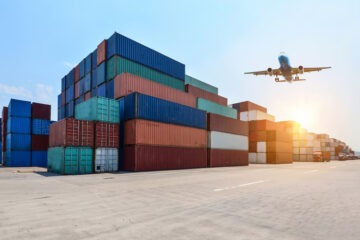
Temperature-controlled transport is a critical component in the logistics of pharmaceuticals. The integrity and efficacy of pharmaceutical products can be significantly affected by temperature fluctuations, making precise temperature management essential.
-
- Planning and Strategy
Planning is the cornerstone of effective temperature-controlled transport for pharmaceuticals. The process begins with understanding the specific temperature requirements of the pharmaceutical products being transported. This includes determining the optimal temperature ranges, humidity levels, and the duration of transport.
Logistics companies work closely with pharmaceutical manufacturers to establish detailed transportation plans. These plans outline the entire journey of the pharmaceutical products, from the manufacturing facility to the end user. Key aspects of planning include:
Route Optimization: Choosing routes that minimize travel time and exposure to external temperature fluctuations.
Pre-Transport Inspections: Ensuring that all equipment and packaging are in optimal condition before loading.
Contingency Planning: Developing backup plans for unexpected delays or equipment failures.
-
- Temperature-Controlled Equipment
The equipment used in temperature-controlled transport is vital for maintaining the required conditions throughout the journey. Logistics companies employ a variety of specialized equipment to ensure pharmaceuticals are kept at the correct temperature.
Refrigerated Trucks: These vehicles are equipped with built-in cooling systems to maintain a specific temperature range. They are essential for long-haul transport and are fitted with temperature monitoring systems to provide real-time data.
Temperature-Controlled Containers: These containers, often used for smaller shipments or for air transport, are designed to maintain a stable temperature environment. They can be insulated or equipped with active cooling/heating systems depending on the needs of the shipment.
Monitoring Systems: Advanced temperature monitoring systems are integrated into refrigerated trucks and containers. These systems track the temperature continuously and provide alerts if deviations occur. Some systems offer remote monitoring, allowing logistics companies to oversee conditions in real-time.
-
- Packaging Solutions
Proper cargo packaging is crucial for maintaining temperature control and protecting pharmaceuticals from external elements. Logistics companies use specialized packaging solutions to ensure the integrity of the products.
Insulated Packaging: Insulated boxes and pallets are used to maintain temperature stability. These packaging solutions are designed to provide thermal insulation, preventing temperature fluctuations during transport.
Gel Packs and Dry Ice: For active cooling, logistics companies use gel packs or dry ice. Gel packs are commonly used for products that need to be kept cool, while dry ice is used for items requiring lower temperatures.
Thermal Blankets: These are used to provide additional insulation and protect against temperature changes during transport.
-
- Handling and Storage
Handling and storage procedures play a significant role in managing temperature-controlled transport. Logistics companies implement strict protocols to ensure that pharmaceuticals are handled and stored properly.
Temperature-Controlled Facilities: Warehouses and distribution centers used for pharmaceutical storage are equipped with temperature-controlled environments. These facilities are designed to maintain consistent temperature ranges and are monitored continuously.
Standard Operating Procedures (SOPs): SOPs are established for the handling of temperature-sensitive pharmaceuticals. These procedures include guidelines for loading and unloading, as well as emergency protocols in case of equipment failure.
Employee Training: Staff involved in the handling and transport of pharmaceuticals receive training on temperature control procedures and emergency response. This ensures that they are equipped to manage any issues that may arise during transport.
-
- Quality Assurance and Compliance
Ensuring quality and compliance is paramount in temperature-controlled transport for pharmaceuticals. Logistics companies adhere to strict regulatory standards and industry best practices to maintain the efficacy of the products.
Regulatory Standards: Companies must comply with regulations such as Good Distribution Practice (GDP) and Good Manufacturing Practice (GMP). These standards provide guidelines for the handling, storage, and transport of pharmaceuticals to ensure their quality and safety.
Documentation and Reporting: Accurate documentation is required to track temperature conditions and compliance. Logistics companies maintain detailed records of temperature readings, inspections, and any deviations from standard conditions.
Regular Audits: Regular audits and inspections are conducted to ensure that all equipment and procedures meet regulatory standards. These audits help identify potential areas for improvement and ensure ongoing compliance.
-
- Challenges and Solutions
Managing temperature-controlled transport comes with its challenges, including:
Temperature Fluctuations: External temperature changes can affect the internal environment of transport vehicles. Solutions include using advanced insulation and real-time monitoring systems to mitigate these effects.
Equipment Failures: Malfunctions in cooling systems can lead to temperature deviations. Regular maintenance and the use of backup systems are essential for addressing potential equipment failures.
Regulatory Compliance: Staying compliant with evolving regulations can be challenging. Continuous training and updates to procedures ensure that logistics companies remain compliant with current standards.
Effective management of temperature-controlled transport for pharmaceuticals involves meticulous planning, the use of specialized equipment, and adherence to strict regulations. Logistics companies play a crucial role in ensuring that pharmaceutical products are transported under optimal conditions, maintaining their efficacy and safety.
At Abhijeet Logistics, we excel in providing comprehensive temperature-controlled transport solutions tailored to the needs of the pharmaceutical industry. Our state-of-the-art equipment, rigorous handling procedures, and commitment to compliance ensure that your pharmaceutical products are delivered in perfect condition.
Contact us to learn more about how our logistics services can support your temperature-sensitive logistics needs.



